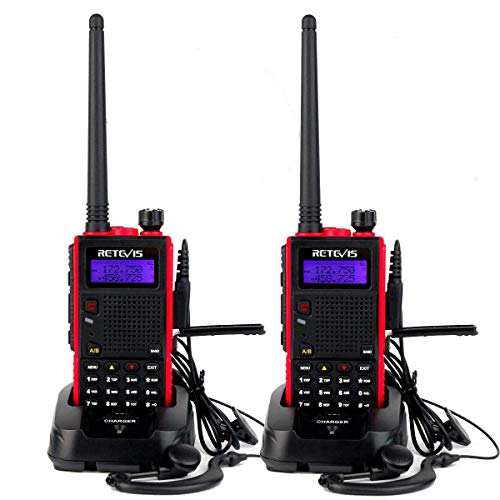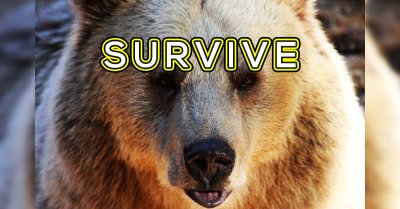
Survived in Wilderness is an reality television series that focuses primarily on survival skills. The show sees thousands of people jump from planes and land in the middle the primary forest. They are armed with a backpack water bottle and a dagger. Yu Beier was eight years old and accidentally activated wilderness survival. Yu Beier won money for his mom.
Lessons from the hit survival show
Survivor, a popular reality TV show, offers some valuable lessons. It is important to have adaptability if you want survive in the wilderness. Flexibility is key. You have to be willing to accept any challenge that comes your way, and to adapt to whatever environment or situation arises.
Survival kit essentials
A wilderness survival kit should include a variety of tools that can help you survive in the wild. It should be specific to your region and year. A first aid kit is also a must. It should include the appropriate medical supplies and tools depending on the situation. A kit should be easy to use.

Here are some ways to start a bonfire
Fuel is the most important thing you need in order to light a fire in the wild. You can either use charcoal or dry wood. You should cut fuel pieces that measure eight to twenty-four inches in length. Birch, which can be found near rivers or lakes, is the best choice of wood. This wood burns hot, and spruce trees produce more smoke in the spring and fall. Any dry wood can be used as long as it is dry. Look out for lighter knots. These can be chunks that are brittle and have accumulated sap. Lighter knots will burn slowly and efficiently, and they're best for a blazing campfire.
Food
It can be difficult to find food while you're out in nature. To survive, you need to learn how to find food sources and gather wild foods. It is also important to investigate potential dangers before you consume them. Wild food harvesting offers the ultimate survival experience. It helps you to reconnect with nature.
Shelter
It is common to find fallen trees in the wilderness. These trees can be used to create shelter. Although thin trees might not fall to the ground completely, they are strong enough to provide protection from rain and other elements.
Mental faculties
One of the most important ingredients for wilderness survival is a strong will. Your willpower is key to extraordinary feats. Strong will is critical for survival. Research has shown that the will of a person can save his life in the wilderness.

Foraging
You need to be knowledgeable about the landscape, animals, plants and terrain surrounding you when foraging in the wilderness. It is important to know what is edible and which are toxic. Respect for property and animals is essential. Additionally, knowledge should be gained about medicinal as well as edible plants.
FAQ
What is the difference of a folding and fixed-blade knife, you ask?
Folding knives are designed to fold compactly to fit inside a pocket or backpack. When not in use the blade folds away.
Fixed-bladed knives are designed to remain fixed during normal use. They have longer blades than those of folding knives.
Fixed-blade knives are more durable but less portable.
Why you should know basic survival skills?
It may not be possible to have food and water at all times, but being prepared can help you live longer.
It is important to learn how you can take care of others and yourself. If you don’t know what to do, you will not last long in times of crisis.
If you plan to go into the wilderness and need food and shelter, you should learn how to make fires and cook.
These are essential skills that every person should have. These skills will help you stay safe and healthy during a camping trip.
What is the most essential item for survival?
The most important thing you need to survive is food. You also need shelter from the elements, which are not as essential as food. You will not live very long if there isn't enough food.
What time does it take for help to be found after you have lost your way?
It all depends on several factors.
-
Wherever you are
-
What terrain are you on?
-
It does not matter if you are able to receive cell phone service
-
If someone has ever seen you
-
Whether you have been injured
-
It doesn't matter if you're dehydrated
-
You have been drinking water?
-
Whether you have eaten recently
-
It doesn't matter if you are wearing the right clothing
-
It doesn't matter if you have a compass and a chart.
-
How familiar are your local surroundings?
-
How much time has passed since you became lost
-
How much time did you spend searching for help
-
How long does it take for people notice that you're missing?
-
It is amazing how quickly they search for you
-
How many rescuers have you attracted?
-
How many rescues did you receive
Why are knot-tying skills very important for survival?
Knots are used by people all over the world to tie together items such as ropes, fishing lines, ladders, etc. They can also be used to tie bags shut, secure objects to trees, or create shelters. You can save your life by knowing how to tie knots to trees or ropes, or to secure shelters.
Statistics
- In November of 1755, an earthquake with an estimated magnitude of 6.0 and a maximum intensity of VIII occurred about 50 miles northeast of Boston, Massachusetts. (usgs.gov)
- so you can be 100 percent hands-free, and there's less chance you'll put your torch down and lose it. (nymag.com)
- We know you're not always going to be 100% prepared for the situations that befall you, but you can still try and do your best to mitigate the worst circumstances by preparing for a number of contingencies. (hiconsumption.com)
- The Dyrt PRO gives 40% campground discounts across the country (thedyrt.com)
External Links
How To
How to Locate Edible Animals and Plants in Emergencies
In emergency situations, edible plants and animals can be a vital food source. Because they provide energy and nutrients that are not available in normal food, you should include them in your emergency kit. You may also use them to make medicines and cosmetics.
You must know where the plants are located and what type of climate they like. This knowledge will help you identify them quickly. It's not possible to know everything about every animal and plant species. Fortunately, there are general rules that can be applied to most animals and plants.
For instance, if you notice a plant growing near water you can assume it loves moist soil. If the leaves are shiny, this means they have been watered recently. If you see ants near a plant, this means the plant is providing nectar for bees. These simple observations are a great way to save time when you need to find animals or plants that can be used in emergencies.
Books written by experts in botany and Zoology can help you to learn more about edible animals and plants. You can also watch documentaries and talk to people who live in rural areas. The steps below will help you learn about animals, plants, and other topics.
-
Seek out plants and animals that can be found near water.
-
Examine the growth habits for both animals and plants.
-
Learn about the natural habitats of plants and animals. For instance, you might search for areas that have a specific soil type, climate or vegetation.
-
Identify which parts of plants or animals you can eat.
-
Learn how you can cook both animals and plants.
-
So that you can get to know wild animals and plants better, try eating them.
-
Take care when collecting wild animals and plants. Do not pick from endangered species.
-
It is important to properly store wild plants and animals. These plants and animals should be kept cool, dry, and out of direct sunlight.
-
Always wash your hands after handling wild plants and animals.
-
Before you consume fruits or vegetables, wash them.
-
Don't consume raw meat or fish unless you're certain that it's safe.